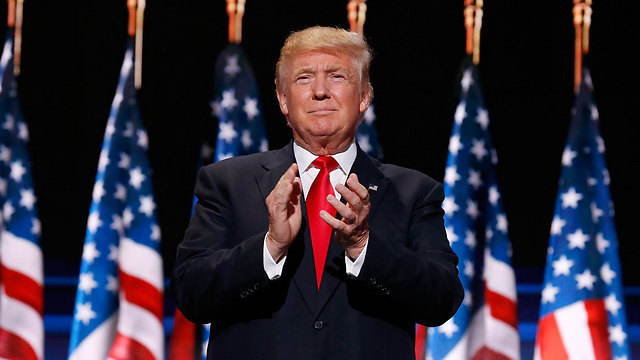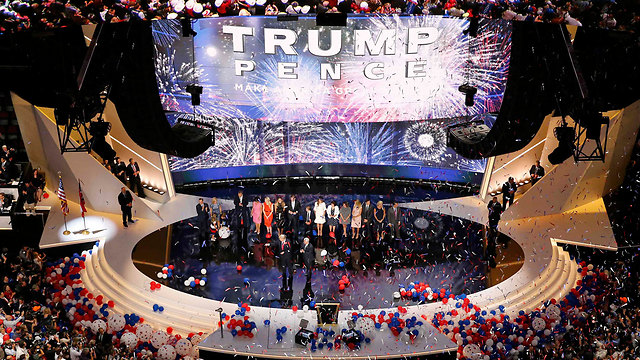Op-ed: Donald Trump may not have done it elegantly, but he managed to ride the wave of anger that’s been part of the Republican Party’s self-destruction straight into the nomination. Will he be able to keep it going and win the presidency?
The Republican National Convention’ which had the feel of a convention of the country’s most depressed and downtrodden, ended with the coronation of a real estate tycoon who owns a beauty pageant and pro wrestling tournaments, in addition to hosting a successful reality TV show, as the party’s presidential nominee.
There wasn’t a researcher, presidency expert, pundit, or reporter who didn’t ask themselves, “What has become of the party Abraham Lincoln and Teddy Roosevelt?” The answer is simple: It reached the place to which it’s been marching blindly (but surely) for the past 15 years.
Donald Trump isn’t the problem, he’s the result of the problem. He won’t bring about the dissolution of the Republican Party, as many have speculated – the party’s dissolution is what led to his candidacy’s success. He didn’t plan the party’s rift with the US, and he didn’t fan the flames of a bloody civil war between the Republican establishment and it’s voter base.

Trump just exploited these phenomena to secure his nomination, wisely and with considerable political savvy – even if not especially elegantly. Perhaps the convention was a chance for Trump to change his image and escape from his cartoonish public image, as the New York Times suggested, but Trump chose willingly to not do so.
Trump may be a dart prince with an ego bigger than the continent on which it lives. He encourages fears and sprays gasoline at the fire of ugly hatred towards everything that’s different. He inflames people’s understandable fears of change. But he knows his audience. He won the primary by describing to the voters a dark reality of despair, rising crime levels, violence, hopelessness, international weakness.
The facts and figures actually point to the exact opposite – but that’s Trump.
Trump’s convention speech was, even if tame by his usual standards, that belongs coming out of the mouth of an unthinking person, clueless, fact-free, devoid of ideas, without plans. But it was also the speech of a person who understands his voters: White men, mostly old and not academically educated, who feel like they’ve been left behind and hate immigrants.
The Miriam-Webster dictionary published the most commonly-searched word people look up on its website following important events. After Trump’s speech, the word was “dystopia.”

A utopia is a place which doesn’t exist, since its perfection is impossible to reach. A dystopia is a bad place, and that place’s other name, according to Trump, is America. An entire convention, and a 75-minute speech (longer than Governor Mitt Romney and President Barack Obama’s combined speeches in their respective conventions in 2012) that were venomous, hateful, sour affairs speaking of “our America,” which is no more.
Trump’s slogan, Make America Great Again, is really a code for making America white again. That’s why 67 percent of Americans see him as unfit to be president, and that’s why he’ll have a hard time getting a majority in many states – although at this stage of the campaign, his chances cannot be dismissed. That’s also why, in an unprecedented move, the Washington Post recently published an editorial titled, “Donald Trump is a unique threat to American democracy.”
As reported by Ynetnews
